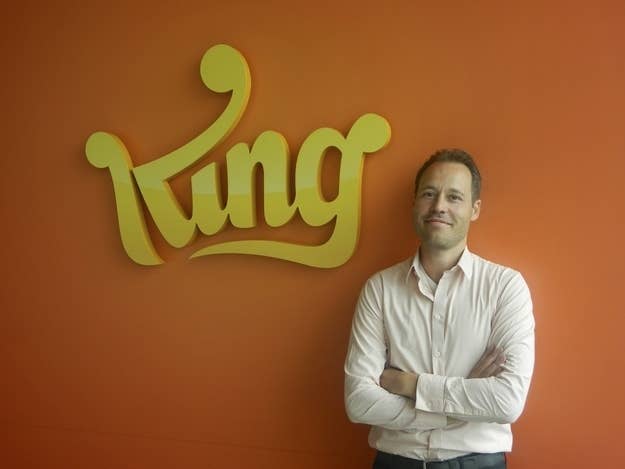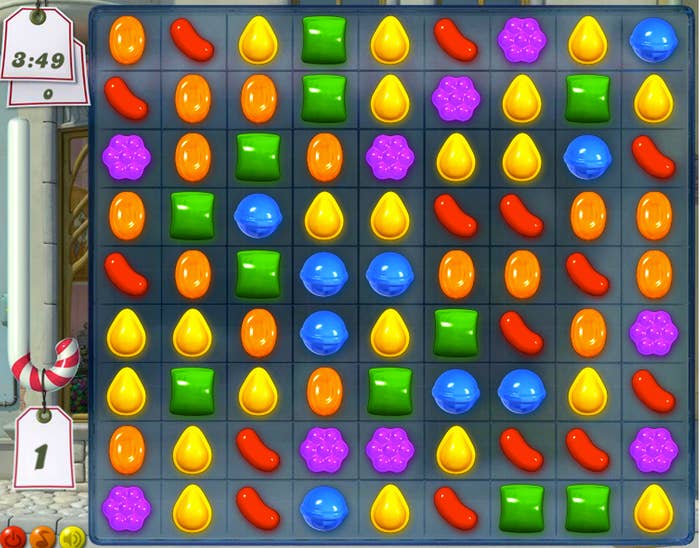
On its face, the news today that King.com, maker of the mobile behemoth Candy Crush Saga, filed a notice of opposition with the U.S. Patent and Trademark Office against the makers of the recent indie game The Banner Saga because of the use of a single common noun, is totally outrageous.
King is a 550-person company worth billions of dollars, and Candy Crush generates more revenue in a single day than the entire $723,000 Kickstarter campaign for The Banner Saga, a niche passion project about Vikings by three game industry veterans. These massive differences in human and financial scale, and in actual game content, have led to a uniform, and not unjustified, outcry from indie game developers and game journalists. In this narrative, King comes across as a jealous bully, the maker of faceless mobile crap, using its massive legal and financial apparatus to trample on actual creators working on a worthier level.

Looked at this way, King's explanation for the filing reads as an unconvincing excuse for legal overkill:
King has not and is not trying to stop Banner Saga from using its name. We do not have any concerns that Banner Saga is trying build on our brand or our content. However, like any prudent company, we need to take all appropriate steps to protect our IP, both now and in the future.
"In this case, that means preserving our ability to enforce our rights in cases where other developers may try to use the Saga mark in a way which infringes our IP rights and causes player confusion. If we had not opposed Banner Saga's trade mark application, it would be much easier for real copy cats to argue that their use of 'Saga' was legitimate.
"This is an important issue for King because we already have a series of games where 'Saga' is key to the brand which our players associate with a King game; Candy Crush Saga, Bubble Witch Saga, Pet Rescue Saga, Farm Heroes Saga and so on. All of these titles have already faced substantive trademark and copyright issues with clones.
But let's put King in context. This is a new company reliant on a single property so successful that it has had to delay its initial public offering in order to convince investors that it is still a good bet even once Candy Crush slows down.
It's important to remember that among the factors that have made Candy Crush so successful — social integration, ingenious difficulty scaling, a really high frame rate, word of mouth, the candy theme, and the name — only one can really be legally protected by copyright. There is precious little intrinsic to Candy Crush that is individual and marketable, unlike, say, Rovio, which is able to spin its iconic angry birds into toys, books, television shows, and a 2016 movie.
In other words, because Candy Crush Saga lacks unique characters, narratives, or mechanics, King is almost totally reliant on the name of its game to expand its brand, as they have attempted to do, with very limited success, with a long list of other Saga games. So, yes, compared to the makers of the Banner Saga, King is absurdly huge and powerful. As a massive company trying to go public, though, King is incredibly vulnerable (as BuzzFeed reported last year).
Everyone — King, King's potential investors, game journalists — knows that mobile and casual gamers are incredibly fickle, a fact supported by a litany of startup gaming failures, most notably Zynga and its $180 million acquisition of OMGPop. It's in this frame that King's statement starts to make more sense. First, it reads as a reassurance to investors: King is a grown up company protecting its assets. Second, it reads very nearly like an apology to the small game company that happened to wander into King's greatest corporate anxiety. In this reading, King doesn't see itself as a bully, but as a nascent enterprise existentially threatened by its own generic product. It's genuinely afraid that other companies will copy the most distinctive thing about its games — their names — and that no one would notice the difference.
And that's the ultimate irony of this filing. What looks initially like an unjustified act of aggression by a powerful company is actually an admission of profound weakness: Candy Crush Saga may be nothing without its name.
